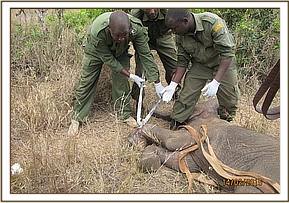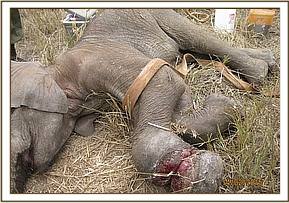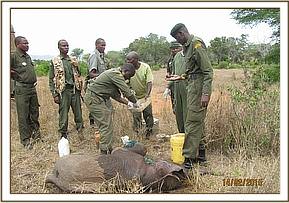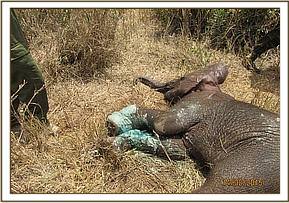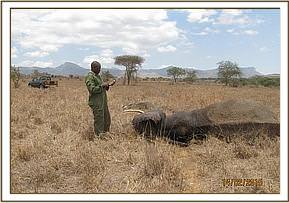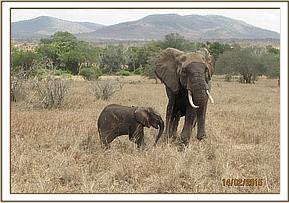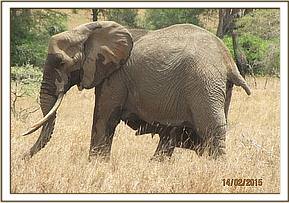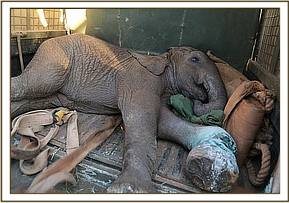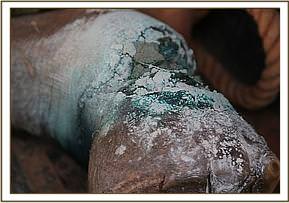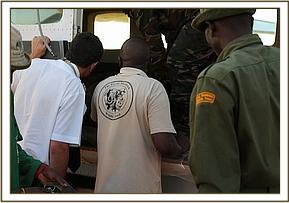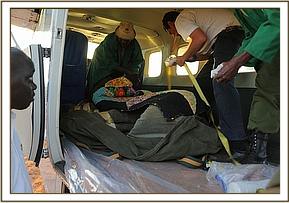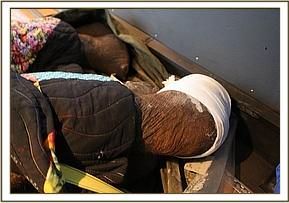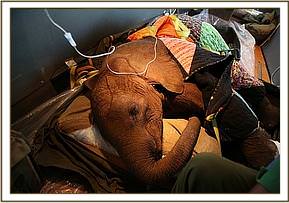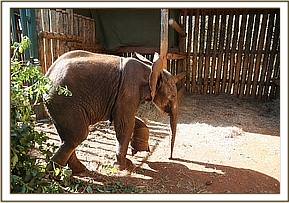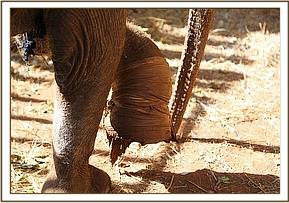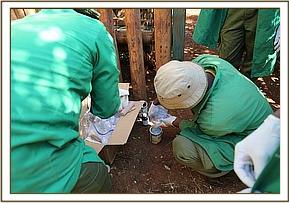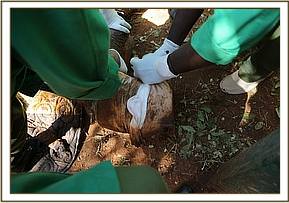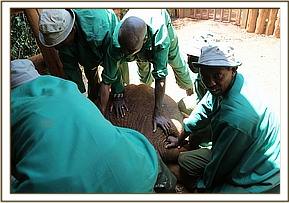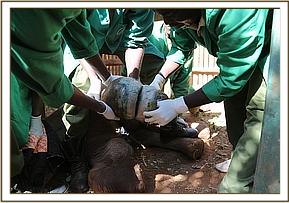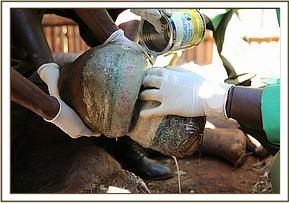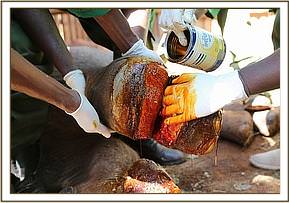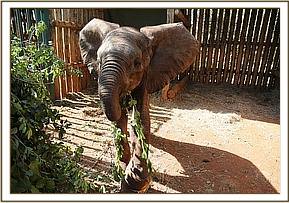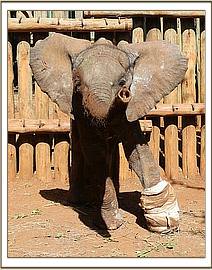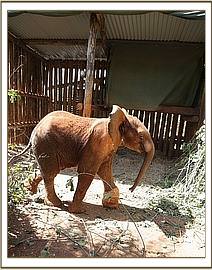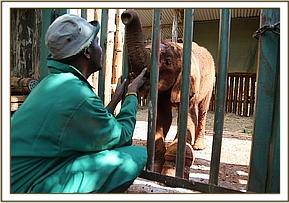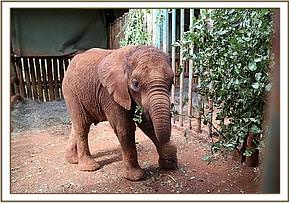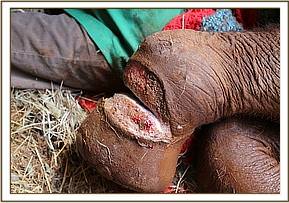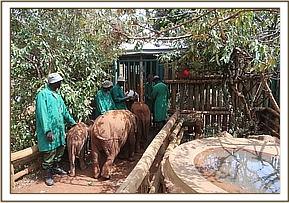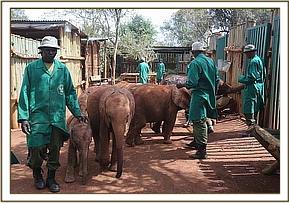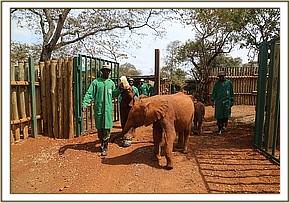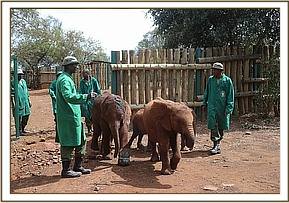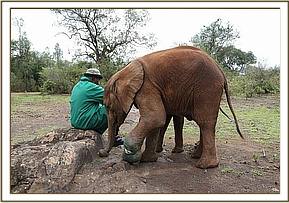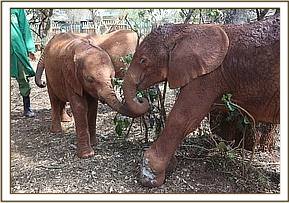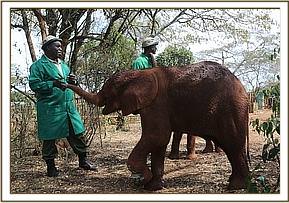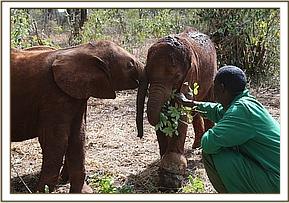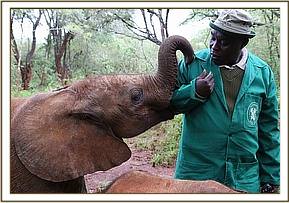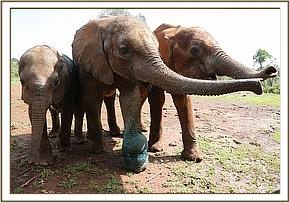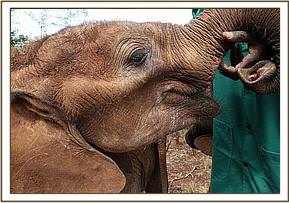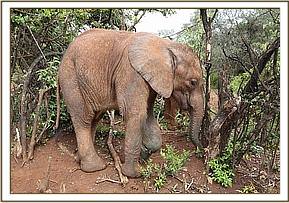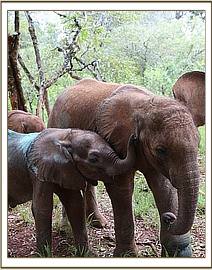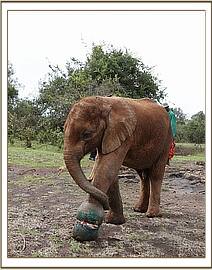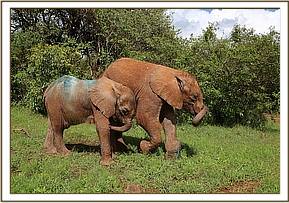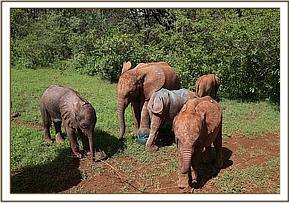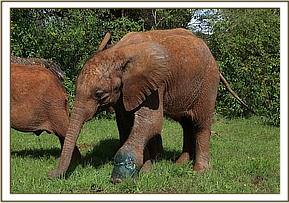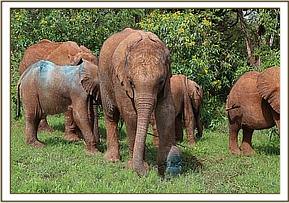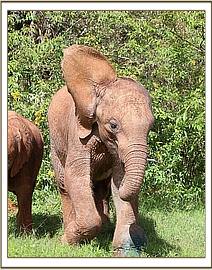













Now living wild, though he remains an integral part of our Umani herd
Current age
11 years old
Gender
Male
Rescued date
9 March 2015
Rescue location
Tsavo Ecosystem, Taita Ranches
Date of birth (estimate)
8 March 2014
Reason orphaned
Poaching
Age at rescue
12 months old (approx)
Current location
Umani Springs Reintegration Unit
Our anti-poaching teams monitored their movements throughout this time checking on his progress, but as the weeks passed it became apparent that his condition was deteriorating. His mother was forced to drop out from their herd, unable to walk any distance in search of food, and the two of them cut a lonely sight as she remained by the side of her ailing calf, who was becoming increasingly immobile with each new day.
While everyone had prayed for a positive outcome when the cable snare was first cut away from his leg in early Feb, it was obvious that now, nearly a month on, the wound was so severe that without daily medical attention it could not possibly heal in field conditions. If not rescued he would succumb to his injuries, or be torn apart by predators. His mother was struggling too, her condition was deteriorating as a result of being forced to remain close to water with little food available, inhibited because of her stricken calf.
Further drama unfolded as Wilson airport closed because of the late hour and the rescue plane was diverted to land at Jomo Kenyatta International Airport at 8.00pm. For the team eagerly waiting for the new arrival in Nairobi this spelt disaster as we contemplated the logistics involved in extracting a baby elephant from Kenya's International Airport.
Thankfully the authorities were amazingly accommodating and understanding, with everybody working closely together to release the calf without any delays in order to get him to safety as quickly as possible. We could not have wished for a smoother situation and were extremely grateful for the compassion shown.
On arrival at the Nursery he was placed in a stockade next to another orphan called Sirimon, and given a bottle of milk which he was reluctant to take at first. Fresh greens were placed in his stockade and a keeper was on duty with him throughout the night. By next morning he was already passionate about his milk bottle, and sucking the keeper’s fingers.
He is an extremely loving little calf, and despite what humans have inflicted on him, all but severing his leg and robbing him of his mother in an effort to save his life, it was as if he understood the situation and made things easier for us.
The first morning his wound was cleaned again and dressed, and he remained relatively calm throughout the procedure, enduring unspeakable pain for sure. He loves the company of the other orphans, and their presence has certainly helped settle him down, We estimate his age to be around 12 months old and we have given him a name from his home range Mwashoti. This is a Taita name for an area where the grewia bushes grow with their red berries close to where this little calf was rescued.
After three weeks, the decision was made to let him head out with the little ones during the day. Keeping him mentally robust is considered every bit as important for healing than taking care of the physical.
This was the right decision, and he appeared so much happier, feeding well and loving the company of the other orphans, with an especially soft spot for little Ngilai. Together they have both healed and grown stronger. Our little babies are very aware of Mwashoti’s injury and often feel and touch it tenderly, sometimes even carefully blowing soft red earth onto it in an effort to contribute towards his healing.
We have been slow to place Mwashoti on the fostering program, as it was hard to believe that he could be retrieved, his wound was so severe. However due to the love and care he has enjoyed, and his own strong will to heal and live, Mwashoti is doing better than our wildest expectations.
The power of green clay has once again proven its worth keeping bone infection at bay throughout this time and enabling his leg to heal. We are proud to share with you Mwashoti’s miraculous story. He is a very special elephant, and it is indeed a privilege to be able to save his precious innocent life. His plight a graphic reminder of the suffering inflicted on these magnificent animals as long as the ivory trade thrives.
We can report Mwashoti's mother rejoined her herd.
Our anti-poaching teams monitored their movements throughout this time checking on his progress, but as the weeks passed it became apparent that his condition was deteriorating. His mother was forced to drop out from their herd, unable to walk any distance in search of food, and the two of them cut a lonely sight as she remained by the side of her ailing calf, who was becoming increasingly immobile with each new day.

View diary updates from across all our orphan units as written by the Keepers

On 15th December 2025, Kerrio, Latika, and Kamili graduated from the Nursery and took the next step in their journey back to the wild. This was a day we had been planning for quite some time — helping our special girls launch in the supportive environment of Umani Springs.
By adopting, you play a vital role in the life of an orphaned elephant, rhino, or giraffe — helping us provide the round-the-clock, loving attention each one needs and deserves over many years, so they can ultimately reclaim their place in the wild.
Your adoption supports the 100+ orphans in our care at any given time, covering the cost of milk and food supplies, Keepers' salaries, veterinary treatment, and other essentials.

Celebrate your adoption with a personalised certificate, ready for you or your lucky gift recipient to print and display!

Each month, we send a detailed update about our Orphans’ Project direct to your email inbox, featuring photos, stories, and special highlights.

From the latest Keepers’ Diaries to a downloadable image gallery and more, adopters have exclusive access to our content library.
